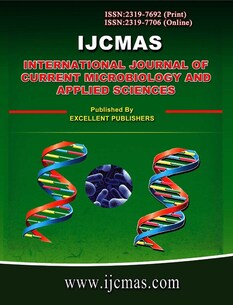 Compost Tea Induced Callus Proliferation and Defense Response in Rice (Oryza sativaL.) Callus Cells International Journal of Current Microbiology and Applied Sciences, 2019 Link Here Fresh tea knowledge coming out of India! Scientists worldwide are recognizing that compost tea does have some extremely beneficial attributes. Tea has been shown to undoubtedly increase growth and fight off pests and disease. Now that tea's efficacy has been settled, inquisitive scientists are starting to ask the whys and hows. A group of scientists from the Department of Plant Biotechnology at the University of Applied Sciences in Bangalore India wanted to see if compost tea stimulated known plant-defense chemicals. They took undifferentiated plant cells, known as callus cells, and put them on a petri dish that had been treated with compost tea. The cells were allow to grow for 15 days. The scientists then looked at the plant cells and determined if, and how much of, the plant defense chemicals were present. (That was a very simplified version of the whats and hows, click the Link Here button above if you want to know the nitty-gritty). And low and behold, the scientists found that the cells treated with compost teas produced more internal plant defense compounds (peroxidase and superoxide dismutase, if you were wondering). Also, the callus cells grew bigger, ending up with a significantly higher dry weight than the non-tea-treated control. Interestingly, some of the callus cells that had been exposed to tea initiated root development. This lead us to think that something in compost tea is analogous to rooting hormones. Further investigation is warranted. Science shows us again that what the old timers have been saying for years, compost tea makes plants stronger and bigger. Tell us your tea-tales in the comment below!
0 Comments
Your comment will be posted after it is approved.
Leave a Reply. |
Archives
June 2024
Categories
All
|
Contact Us
Why TeaLAB?TeaLAB is committed to helping people and their gardens to become more self- sufficient, healthier, and productive. Grow your sweetest corn, your biggest watermelon, your tallest quinoa, your tastiest tomato, and your happiest you.
TeaLAB was founded to teach people how to garden organically, so that we can become more closely connected with the land. Our goal has been to simplify growing methods so that gardeners have a positive experience in the garden. TeaLAB is where the garden meets the laboratory. From around the world and into your backyard, our products contain ingredients that are sourced both locally and globally. Using methods both ancient and cutting edge, TeaLAB promotes maximum biology. Grow with TeaLAB. |

 RSS Feed
RSS Feed
